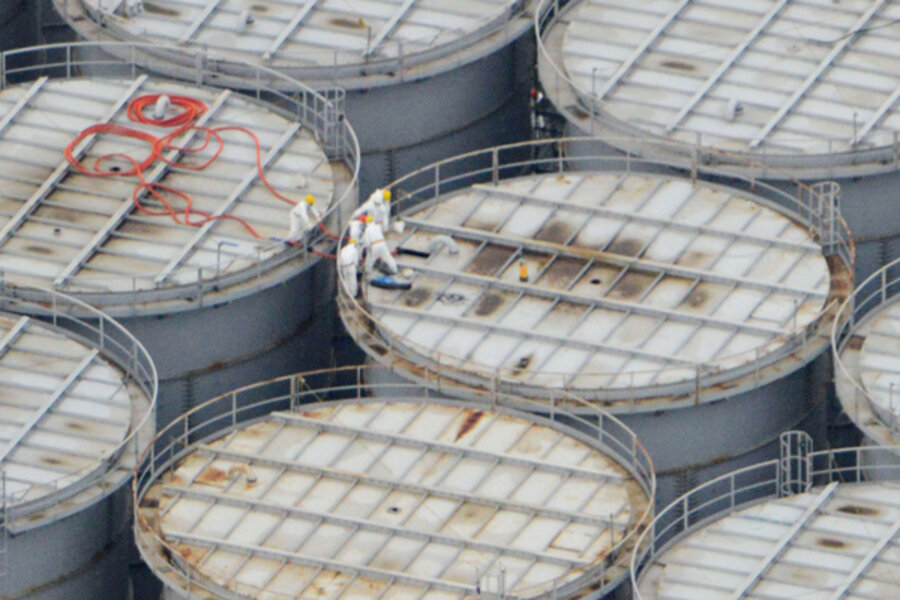Fukushima leak erodes confidence in nuclear power
Loading...
Reports of additional leaks at Japan's Fukushima Daiichi Nuclear Power Plant have put a renewed focus on a disaster that the nuclear industry is eager to move past.
Discharges of contaminated water have plagued the cleanup of the March 2011 disaster at Fukushima, whose cooling systems failed in the wake of an earthquake and tsunami, triggering meltdowns at three reactors. Japan's nuclear watchdog upgraded Wednesday the severity of those leaks.
What happened at Fukushima is a rare occurrence, many in the industry stress, and nuclear remains one of the safest and most reliable ways to generate electricity. Still, the political fallout from Fukushima – and the fumbling recovery in its wake – has delivered another blow to a nuclear industry that a few years ago seemed to have finally shaken the stigma of the Three Mile Island disaster.
Factor in the competition of cheap, abundant natural gas, and the outlook for nuclear isn't so rosy. But a wave of technological innovation offers hope for a fuel that provides about 12 percent of the world's electricity.
"The [Fukushima] remediation work (and the daily news drip) has likely had a negative impact on nuclear perception in the US, but much less than the accident itself," Edward Kee, vice president of NERA Economic Consulting, wrote in an e-mail. "The nuclear industry is good at understanding all accidents and incidents (even minor things that do not make the news) and learning from them to prevent similar things from happening in the future."
In the months after the Fukushima disaster, Japan shuttered its 50 other nuclear plants and only two have returned to service since. Economic pressures have led some politicians in the resource-scarce island nation to push to reopen more plants – an effort that has been met with public protests and opposition.
The shock wave rippled through Germany, a country in the midst of its own energy transition. German Chancellor Angela Merkel put forward plans to shut down the country's nuclear plants by 2022 after the Fukushima meltdown stirred public opposition to nuclear power.
The US has had its own post-Fukushima nuclear curtailment, but that might be more the result of market forces rather than fear of a meltdown. Subsidies for wind and solar and cheap, abundant natural gas have made it difficult for nuclear to compete in electricity markets. Since October 2012, electric power companies have announced the retirement of four nuclear reactors at three power plants in the US. About 20 percent of electricity in the US comes from nuclear.
Public sentiment isn't helping, either. Nuclear came in second-to-last in a March 2013 Gallup poll asking Americans to rank what fuel domestic fuel sources the US should prioritize. (Coal was last.) Thirty-seven percent of Americans said the US should place "more emphasis" on nuclear power, compared with 76 percent of Americans who opted for solar power.
For nuclear to continue to be viable in a changing energy landscape, many believe the industry must think small. The future could be in small nuclear reactors (SMRs), which produce less energy but are less expensive and more flexible than today's capital-intensive nuclear plants. Last November, the US Department of Energy invested $452 million in a Charlotte, N.C.-based company hoping to commercialize the new technology.
"SMRs do offer promise, but it is way too early to know if these designs will be able to achieve the promised cost reductions, safety improvements, and other things that some assume," Mr. Kee wrote. "In 10 or more years, we may see some of the evolutionary designs ... placed into commercial operation and offered into the commercial market. More exotic SMRs ... will take longer. Until then, there is a lot of work to do."








